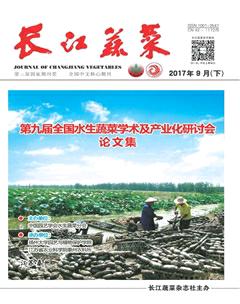The Verbal Irony in Oliver Twist and the Effects It Produces
辛思远
【Abstract】Irony is one of the most common figures of speeches fequently employed in the literary works. This thesis is an study on the irony(mainly verbal irony) and the various effects it achieves in Oliver Twist. Through our analysis based on the text of Oliver Twist, several effects verbal irony produces are clarified.
【Key words】Verbal Irony Oliver Twist; Effects
Irony and Verbal Irony
Irony is one of the most commonplace rhetorical devices in Chinese as well as in English. According to Websters New World Encyclopedia, irony is a literary technique that achieves the effect of saying one thing while meaning another through the use of humor and sarcasm. The word “Irony” originates from the Greek “eiron”, meaning dissembler in speech. It was first recorded in Platos Republic. In Chinese, irony is usually translated into “反語”. Irony can be classified into many kinds, among which the most widely-used are “verbal irony”, “situational irony” and “dramatic irony”. This thesis is going to focus on verbal irony and the due effects it produces.
Verbal irony is a figure of speech on which actual intent is expressed in words that carries the opposite meaning. It is frequently engaged in our daily conversations. For instance, when we complain about the scarce help somebody has offered, we say: “He/She is a big help”. This thesis is going to elaborate on several particular effects verbal irony is expected to produce. Each effect will be exemplified by relevant sentences found in Oliver Twist.
1. Verbal Irony Employed to Entertain
In the Chapter 6 of Oliver Twist, Oliver was introduced to the daily routine of the undertaker. He then observed a very curious phenomenon: “Ladies and gentlemen who were in passions of anguish during the ceremony of interment, recovered almost as soon as they reached home”(Charles.Dickens: 2010: 38-39). The authors remark on that phenomenon was: “All this was very pleasant and improving to see” (Charles.Dickens: 2010: 39). Of course he did not really think this absurd scene was pleasant. And we could not help laughing to imagine that people of high station could somehow manage to recompose themselves within the tea time. Here the ostensible sympathy and anguish assumed by decent ladies and gentlemen were teased with the ironic words “pleasant” and “improving”.
2. Verbal Irony Employed to Ridicule
In the Chapter 2 of Oliver Twist, after the parish authority and workhouse authority discussed over “who can provide Oliver with the nourishment he stands in need”, they decided to dispatch the poor infant to a branch-house, “under the parental superintendence of Mrs. Mann” (Charles.Dickens: 2010: 4). The word “parental” sounds nothing ironic until we are informed that she knew “what was good for herself” better than “what was good for children”. For the same reason, Mrs. Mann was ironically hailed as “a woman of wisdom and experience” and “a great experimental philosopher” (Charles.Dickens: 2010: 4). The verbal ironies listed above were employed to reveal what kind of person Mrs. Mann really was. Her character of being selfish and mean was ridiculed through Dickens ironic compliments.endprint

